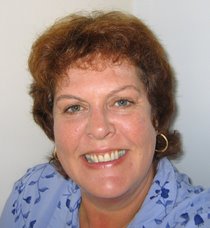We’ve all heard the ‘is the glass half-full or half-empty?’ question. It’s a way of asking if you’re an optimist or a pessimist. Optimists tend to regard the world as a positive place. They believe that everything works out for the best in the end while pessimists seem to make their lives unnecessarily miserable by always assuming the worst.
Human beings have delved into discussions on human happiness since ancient times, although, until fairly recently, philosophers and researchers have focused more on what stops us being happy rather than what positively makes us happy. It’s interesting that in the last thirty years of the 20th century journals published 46,000 psychological papers on depression, but only 400 on joy. This has changed and there are now far more studies into mental ‘wellness’ as opposed to mental illness.
Martin Seligman, a well-known researcher in this field (and author of Learned Optimism: How to change your mind and your life) has explored why optimists are happier than pessimists and discovered that the main difference is the way they explain setbacks to themselves. It’s how we speak to ourselves inwardly that influences our attitudes. Optimists think of bad things happening as temporary problems that are not their fault and look for ways to move on from them. Pessimists see the bad things as permanent, their own fault and far-reaching.
What’s interesting is that optimists, despite being seen as reckless by some pessimists, are generally more successful. Optimism improves your health, while pessimism undermines it. In fact both of these states of mind are self-fulfilling prophecies because if you’re a pessimist you’re bound to feel defeated by what happens to you. If you’re an optimist you’ll tend to look for a way to overcome the problem.
Fortunately optimism can be learned! The glass can be half-full or half-empty, but you’ll be happier, healthier and more successful if you think of it as half-full. Start to talk to yourself more positively. Instead of calling yourself ‘stupid’ when you make a mistake try to say ‘Well, I learned from that mistake’. Instead of saying ‘I can’t’ try saying ‘I can’t at the moment’. Instead of seeing things that you do as right or wrong, see them as learning processes. Some basic changes in the vocabulary you use when listening to your inner voice makes enormous changes in the way you think about events around you.
Once you realise how much the way you think affects the way you tackle life, you can start to make changes to those thoughts and become a lot more optimistic. We’re not perfect. We all make mistakes so don’t keep blaming yourself. Unexpected problems happen and they help us grow as we deal with them. If you start to see life that way you’ll feel much better emotionally and you’ll be happier and healthier. It may take a while. Changing the way your mind works is almost as hard as changing your body, but it can certainly be done and it’s worth the effort.
(If you want to do a quick test to see whether you’re an optimist or a pessimist, then check out www.spiritualityhealth.com/cgi/optimism)
Saturday, July 14, 2007
Subscribe to:
Comments (Atom)
